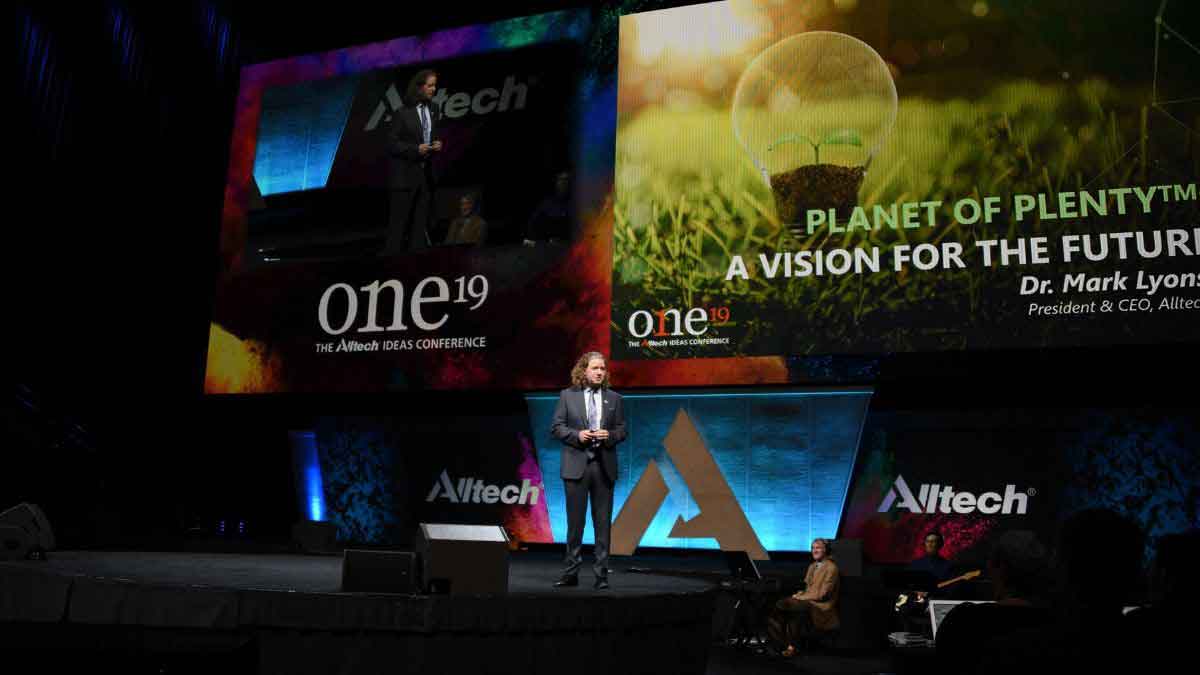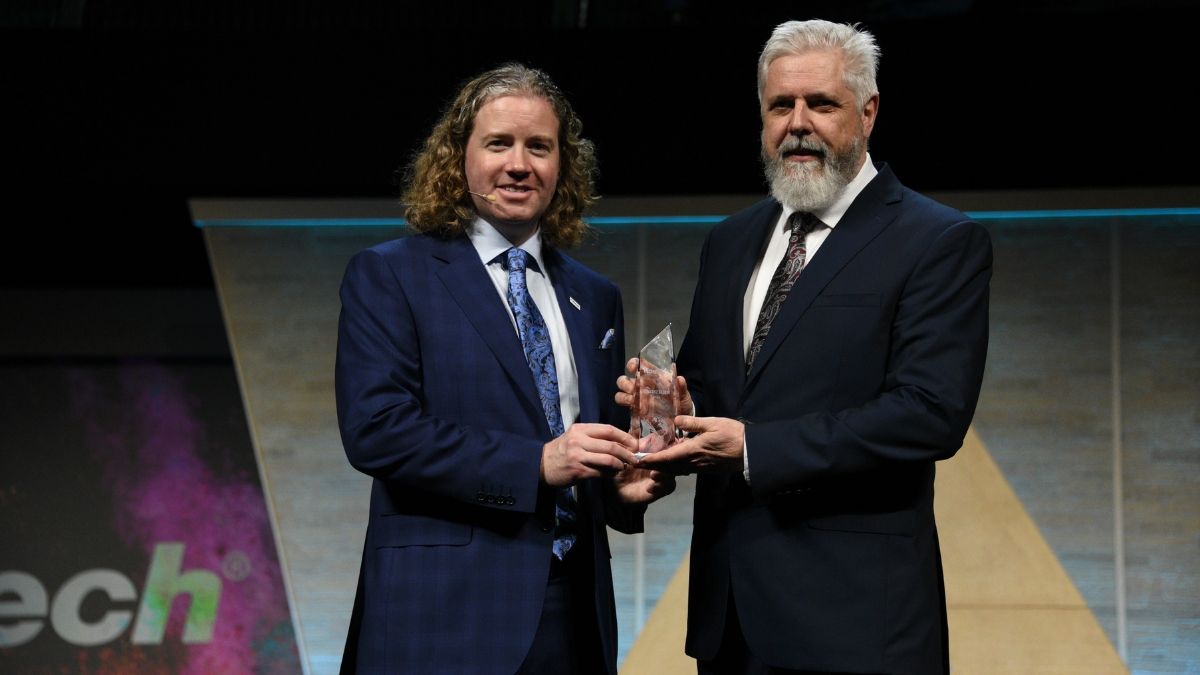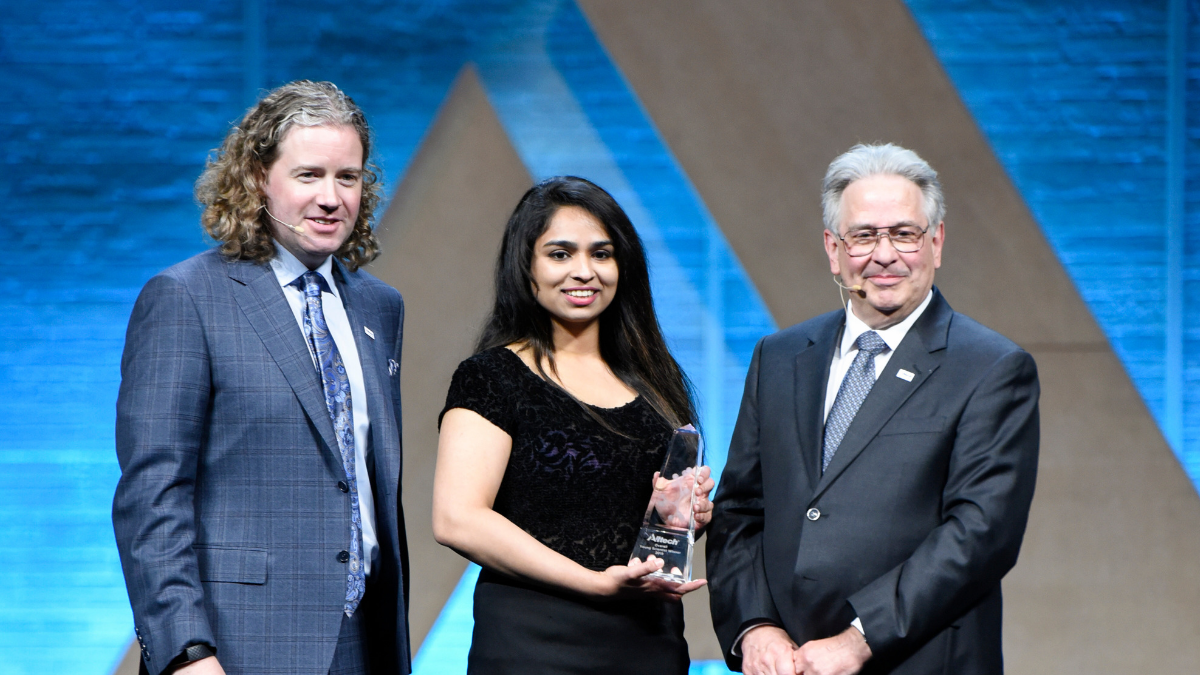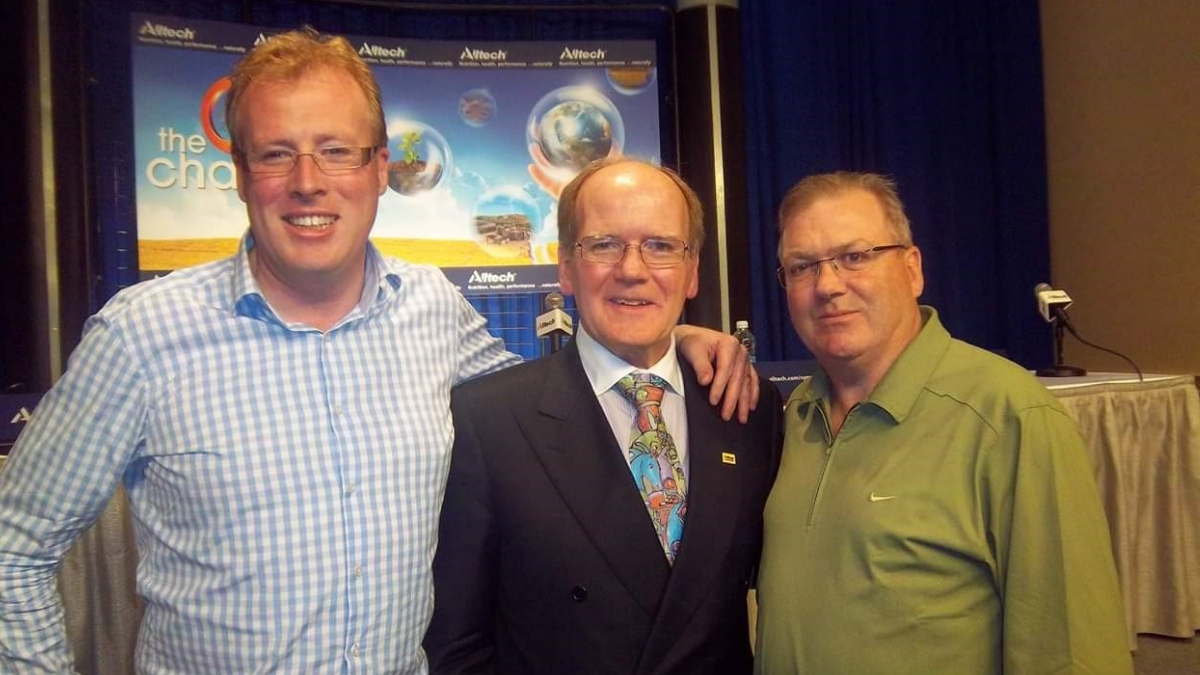Amanda Radke: Alternative "meat" vs. traditional beef - Which is really more environmentally friendly?
Consumers are growing more and more environmentally conscious, and many have started to experiment with meat-free options. From plant-based burgers to burgers made entirely of tissue-cultured meat, are these really the "alternative meats of the future?" What does this mean for the beef industry, and which option is actually better for the environment?
The following is an edited transcript of David Butler's interview with Amanda Radke, beef blogger. Click below to hear the full audio.
David: I'm here with Amanda Radke, who's a South Dakota cattle rancher and a blogger with Beef Magazine. How are you doing, Amanda?
Amanda: I'm doing great. How about yourself?
David: Good! Thanks so much for being on the show.
Amanda: Yeah, you bet.
David: Let's talk a little bit about alternative proteins. You've been looking into that some lately and done some research on it, right?
Amanda: Yeah. I think one of the biggest things that I wanted to emphasize in my message today was that I'm not anti-technology, and anything that we can come up with as far as food-science goes to feed the hungry planet is wonderful. So, I didn't want to pit traditional beef production against anything else, and I'm not against consumer choice. However, some of these Petri dish protein companies are really touting themselves as environmentally and ethically superior to traditionally raised beef, and so I wanted to highlight why the beef cow is incredible in providing a safe and nourishing beef product for us to consume — and, also, life-enriching byproducts, and that simply can't be replicated in a Petri dish.
David: So, let's compare beef to some of the different alternative protein options out there — and I know there are a bunch of them, so maybe the first thing would be to say, what are all the different alternatives?
Amanda: Sure. Well, we're seeing plant-based protein patties, like Beyond and Impossible, hitting the marketplace and receiving a lot of traction and attention from retailers carrying those options — and not just marketing them to your vegetarian and vegan crowd but marketing them to meat lovers as a direct replacement to a traditional cheeseburger. We also may see Petri-dish proteins enter the marketplace as soon as the end of the year, and so a lot of what we know about these products is conjecture right now, because these companies aren't really forthcoming with any information on their manufacturing processes. However, what I do know is that the modern beef producer of today has a lot of great advantages as far as efficiently producing beef and doing it in a way that is not just sustainable to our natural resources, but it's regenerative, too, and so that's really what I wanted to celebrate today in my message.
David: Go into some more specifics on how beef production is regenerative. What do you mean when you say that?
Amanda: When I say regenerative, I want to look specifically at rangelands and grasslands. A lot of times, consumers will say, “Well, we could just plow up that land and use it to grow crops or cereal grains or whatever to feed people,” but the fact of the matter is that most of this land is unsuitable for modernizing or farming and can only be used by ruminant animals — and if it were not, it would become a desert or a barren wasteland. So, cattle, with each bite of grass they take, with each step of their hooves, they aerate the soil. They reduce fuel for wildfires. They provide habitat for everything from bees to rabbits and mice to deer and foxes, so they're a critical component to our ecosystem, and they're just part of the balance. Not only that, but they can upcycle this poor, marginal, inedible, cellulosic material that is grass and they can convert it into a nutrient-packed superfood like beef.
David: And it's not just grass, right? What other kinds of cellulose materials do they —
Amanda: Sure. Well, it depends on the part of the country. They can eat everything from potato byproducts in Idaho to distillers grains in the corn belt, and so they can take byproducts of other crop production and other foods and can convert that into beef as well. I think, a lot of times, our consumers misplace the information or misplace the blame on climate change and greenhouse gas emissions because they've been told, if they skip eating meat one day out of the week, they'll save the planet — but, ultimately, I guess I really want to stress that Mother Nature wasn't wrong and the beef cow is incredible, and so we shouldn't throw the baby out with the bathwater, and that she can play a critical part in taking care of our natural resources and feeding a hungry planet.
David: That's good to know. You've got some kinds of problems that you've outlined, where alternative proteins don't stack up to beef. Do you want to talk through some of those with us?
Amanda: Sure. The first problem — and maybe it's just the advantage of the beef cow — but these companies haven't really proven their environmental impact. So, when they talk about the natural resources used in beef production, they also fail to acknowledge the energy use, the crops that are needed, the fact that there are still fetal cells that will be used in this production practice, the waste produced, as far as what's being grown in the laboratory.
This all has an environmental footprint as well, and so I think there's some burden of proof there for them to show us what their environmental footprint actually is, and can it compete if it goes to scale.
The next problem, as we discussed, is that this lab meat can't regenerate and build topsoil quite like cattle can, and so, anytime we plow up rangeland and pastures to be used for monoculture and crop production, we're losing that carbon capture of having that soil covered by grass. So just by having the grasslands maintained and not going into barren wasteland or trying to grow cereal grains or an alternative on this marginal land is something these Petri dish proteins can't do.
The next, and it's one I love talking about, is byproducts. When we think of beef cattle, we think of steaks and cheeseburgers, but it's so much more than that. It's things like insulin for diabetics, crayons, deodorants, leather goods like boots and belts and furniture, and everything in between. There are hundreds of byproducts that enrich our everyday lives that come from beef cattle — even organic fertilizer for vegetable production; that comes from cows, too. So, byproducts are a huge thing, and if we're going to try to replace the all-in-one machine that is the beef cow with synthetic or alternative options for all these byproducts, that's going to have an environmental footprint as well.
Then, another problem, a lot of these companies are promising that they're antibiotic-free and pathogen-free. I think it's unfair for any food company to claim that there aren't vulnerabilities as far as food safety goes, and we need more transparency as far as their antibiotic usage — where are they vulnerable, where are points of contamination — and I'm thankful that the FDA and USDA are going to jointly regulate and oversee these production practices, but yet, I think there's a lot more they need to prove before they enter the marketplace.
Finally, someone told me, "Don't you feel bad eating cattle? Your diet leads to death," and I think it's important to note that, once again, every diet, no matter if it's total vegan or total carnivore, there's animal deaths involved. Every time a field is plowed, you're misplacing the wildlife that lived there. It's just a give and take. As a rancher, I understand the circle of life and I value that beef cattle for what she offers to people, to nourish and enrich people's lives. However, I think it's just a convenient thing that the plant-based folks kind of ignore that their diets also cause death and suffering as well, so it's just a matter of where you place your importance, I guess. For me, I can feel pretty confident that I'm utilizing a beef animal and respecting what she has to offer humanity while also respectfully caring for that animal, too, while she is in our care.
David: Yeah, good point. I'm sure most people haven't even thought of the fact that crops do displace natural habitat. Pasture does, to an extent, too. That certainly is a problem, when deforestation occurs for pasture, but if you're on natural grasslands, that's not quite as big of an issue. You mentioned antibiotics, and I would think that most people would assume the cell-based or Petri dish-based meat wouldn't need any antibiotics, because these are not living animals that are walking around and potentially getting sick, so where would the antibiotics come into that process?
Amanda: Sure. Well, without actually having seen the manufacturing process take place, I think there are a lot of unknowns there, and I can't speak with authority on how the antibiotics would be used. However, just like any living thing — especially when it's interacting with humans in a lab — there are those points of vulnerability where antibiotics might be applied and used in that setting. So, I appreciate the National Cattlemen's Beef Association coming out and saying strongly that we need more information and clarity on antibiotic usage in these Petri dish proteins' production practices, and that needs to be regulated and overseen by the USDA.
David: So, you're talking about some sort of instance where there's contamination in the lab or in the production process.
Amanda: Perhaps. It could come out the collection phase, too. We're dealing with live animals at that stage as well, as far as the fetal cells, and so, yeah, I think maybe it's — like I said, we're in its infancy right now, where we don't totally know and understand the processes.
I really hate fear-mongering about any products that I don't know or understand, and I'm always very mindful of, no matter what the beef is, whether it's natural, grass-fed, organic or Petri-dish, it's an option for the consumers and we're getting protein on people's plate, and these products could be viable in the marketplace and a solution to giving people around the world that product. However, where I have problems is in this rush to market and in this rush to get a return on investment with these major investors that are actively participating in these production practices. I worry that food safety, transparency, nutritional information might not be as clear as they should be for our consumers.
David: So, we need to be cautious there, yeah. Talk a little bit about the natural resources, the inputs, that go into cell-based proteins.
Amanda: Sure. Again, this is conjecture, really, from what I've read and can understand, but you're going to need, obviously, a fetal calf and cells from that calf. They'll grow in a suitable medium, and, from what I understand, it could be soybeans or corn, mushrooms, and could even be cattle-based, just depending on the company. That growth medium will grow the muscle fibers and also the fat fibers; they're grown separately and have to come together. By my understanding, they're kept at 98 degrees Fahrenheit, and these cells, as they duplicate and grow, they produce waste, and so, then, waste has to be taken out of that Petri dish as well.
It's a huge process. There might be some opportunities for crop producers, corn and soybean growers, to provide this medium for these cells to grow. I don't want to be shortsighted and think that these products don't have a place in agriculture; however, it's difficult for me, as a beef producer, to see them disparage our industry while also trying to hijack our nomenclature, like beef, and the great reputation that beef has with our beef-loving consumers, and use it to market their product.
David: Yeah. If you're going to have to grow the cells in a medium that's made out of something — because it's not magic, they have to provide nutrients to the cells — if those are supplied with soybeans or corn or any kind of plant, then it's not necessarily going to have a smaller footprint than a cow.
Amanda: Exactly, yes.
David: It might or might not, but it's not going to be drastically — it's not going to be free of inputs, right?
Amanda: Correct.
David: And they also will have to maintain this environment at this temperature and keep it in a sterile setting, and that's going to take a lot of energy.
Amanda: Absolutely, and, yeah, I think they're downplaying that side of their story while really focusing on any negatives they might perceive about traditionally raised beef. And so, I want to compare apples to apples — or apples to oranges, however you might look at it — and as they go to scale in the marketplace, they'll have to prove that burden in the environmental footprint, and then we'll see, but I really think the beef cow can compete and has a great story to tell and is an important part of our environmental stewardship and our sustainability story, as far as a planet and a human race.
David: You've mentioned that there's a little bit of controversy over the use of the words “meat” and “beef”. Some of these products, when they come to market, they may want to call them burgers or meat or beef, or meatless, whatever — so where does that stand? Is it a regulatory issue? Is it controversial?
Amanda: There are several states across the country that are fighting to protect the nomenclature of meat and beef, and I've got to give props to Kentucky; the governor just signed a proclamation declaring it Beef Month for May but also signing a labeling law that would prohibit fake meats from calling themselves “meat” or “beef”. I think that's a great first step in setting those precedents on a state level before it can be federally enforced.
We're also seeing countries around the world, like Australia, France, the European Union — they're all addressing these meat-labeling rules and what is best and most informative for consumers. To me, it's really misleading to have these alternative products be called “meat” and “beef”.
Most importantly, beef producers have invested, through the Beef Checkoff Program, a dollar per animal sold to promote beef. So you have everything from the iconic "Beef: It’s what's for dinner" slogan, to research to create new steaks that would add value to the carcass, to educating our consumers about how best to prepare beef, and that investment has earned us a great reputation with our consumers. Beef is beloved, and it's king of the grill, and now, these companies want to take that nomenclature and use it for themselves, so that's really frustrating, and I think that's why the beef industry in general is really active in this fight: because beef is beef, period, and its name shouldn't be slapped on any other product.
David: Let's compare sales of alternative or plant-based proteins to beef. Where does that stand right now?
Amanda: U.S. sales of plant-based meats jumped 42% between March 2016 and March 2019, to a total of $888 million. Meanwhile, traditional meat sales rose just 1% to $85 billion in that same time frame, and that's according to ABC News. Beyond Meat is valued at $5.1 billion, as of today. I just read a story by a guy, and he predicts that that rising star is going to fizz a lot pretty fast, but I think it's a clear indication that retailers and consumers are incredibly excited about, at least, the plant-based protein patties and are willing to try it. I just read a study that one-third of consumers are also willing to try lab proteins, and so it'll be interesting to see what consumer acceptance looks like once they get to try it, if they like it and, again, if beef can hang on to the center of the dinner plate.
David: So, it's early days, still.
Amanda: Yes.
David: We'll see what happens, right?
Amanda: Yeah. I think the plant-based proteins, if you look at their ingredient list, it's a mile long, and it's essentially just a processed food; it's not a whole, nourishing food like beef is, a complete protein like beef would be. So, for me, it's a little interesting to see what types of consumers are loving this product. Are they the types that are really interested about health and nutrition? Are they buying it out of guilt or fear about the environment or about animal welfare? And, if so, how do we address some of the concerns that they might have about traditional beef and get them back to eating beef as a protein choice in between those hamburger buns.
David: All right. Well, thank you, Amanda. It was a great conversation and I appreciate your time.
Amanda: Thanks for having me. I was thrilled to be able to share that Alltech stage with such talented speakers (at ONE: The Alltech Ideas Conference), and it's just a great event to be a part of.
Amanda Radke spoke at ONE: The Alltech Ideas Conference (ONE). Click here to learn about ONE and how you can access innovation on demand.
- Read more about Amanda Radke: Alternative "meat" vs. traditional beef - Which is really more environmentally friendly?
- Log in to post comments

U.S. sales of plant-based meats increased 42% between 2016 and 2019.






















